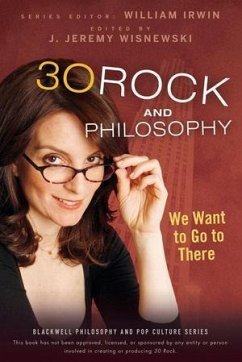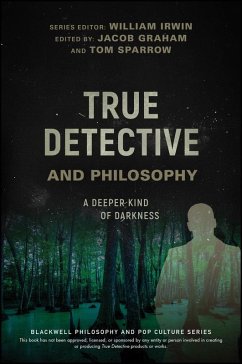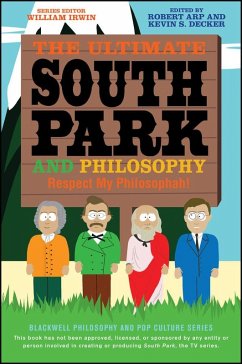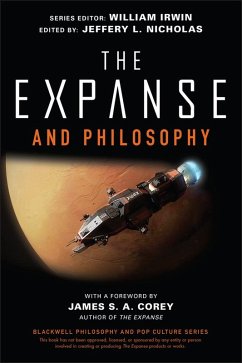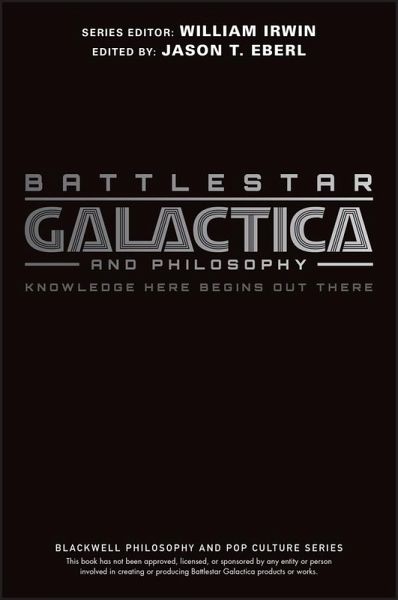
Battlestar Galactica and Philosophy (eBook, ePUB)
Knowledge Here Begins Out There
Redaktion: Eberl, Jason T.
Versandkostenfrei!
Sofort per Download lieferbar
19,99 €
inkl. MwSt.
Weitere Ausgaben:

PAYBACK Punkte
0 °P sammeln!
PHILOSOPHY/POP CULTURE "The contributors to Battlestar Galactica and Philosophy strive to make things relevant to fans of the show, and they put their information out in a way that is accessible to folks who wouldn't know Heidegger from Heineken." Green Man Review, Spring 2009 "The writers are well versed in their subjects...The book is most effective at making the reader rethink what they thought they knew." Neo-opsis What's the point of living after your world has been destroyed? This is one of many questions raised by the Sci-Fi Channel's critically acclaimed series Battlestar Galactica. Mo...
PHILOSOPHY/POP CULTURE "The contributors to Battlestar Galactica and Philosophy strive to make things relevant to fans of the show, and they put their information out in a way that is accessible to folks who wouldn't know Heidegger from Heineken." Green Man Review, Spring 2009 "The writers are well versed in their subjects...The book is most effective at making the reader rethink what they thought they knew." Neo-opsis What's the point of living after your world has been destroyed? This is one of many questions raised by the Sci-Fi Channel's critically acclaimed series Battlestar Galactica. More than just an action-packed "space opera," each episode offers a dramatic character study of the human survivors and their Cylon pursuers as they confront existential, moral, metaphysical, theological, and political crises. This volume addresses some of the key questions to which the Colonials won't find easy answers, even when they reach Earth: Are Cylons persons? Is Baltar's scientific worldview superior to Six's religious faith? Can Starbuck be free if she has a special destiny? Is it ethical to cut one's losses and leave people behind? Is collaboration with the enemy ever the right move? Is humanity a "flawed creation?" Should we share the Cylon goal of "transhumanism?" Is it really a big deal that Starbuck's a woman?
Dieser Download kann aus rechtlichen Gründen nur mit Rechnungsadresse in A, B, BG, CY, CZ, D, DK, EW, E, FIN, F, GR, HR, H, IRL, I, LT, L, LR, M, NL, PL, P, R, S, SLO, SK ausgeliefert werden.




